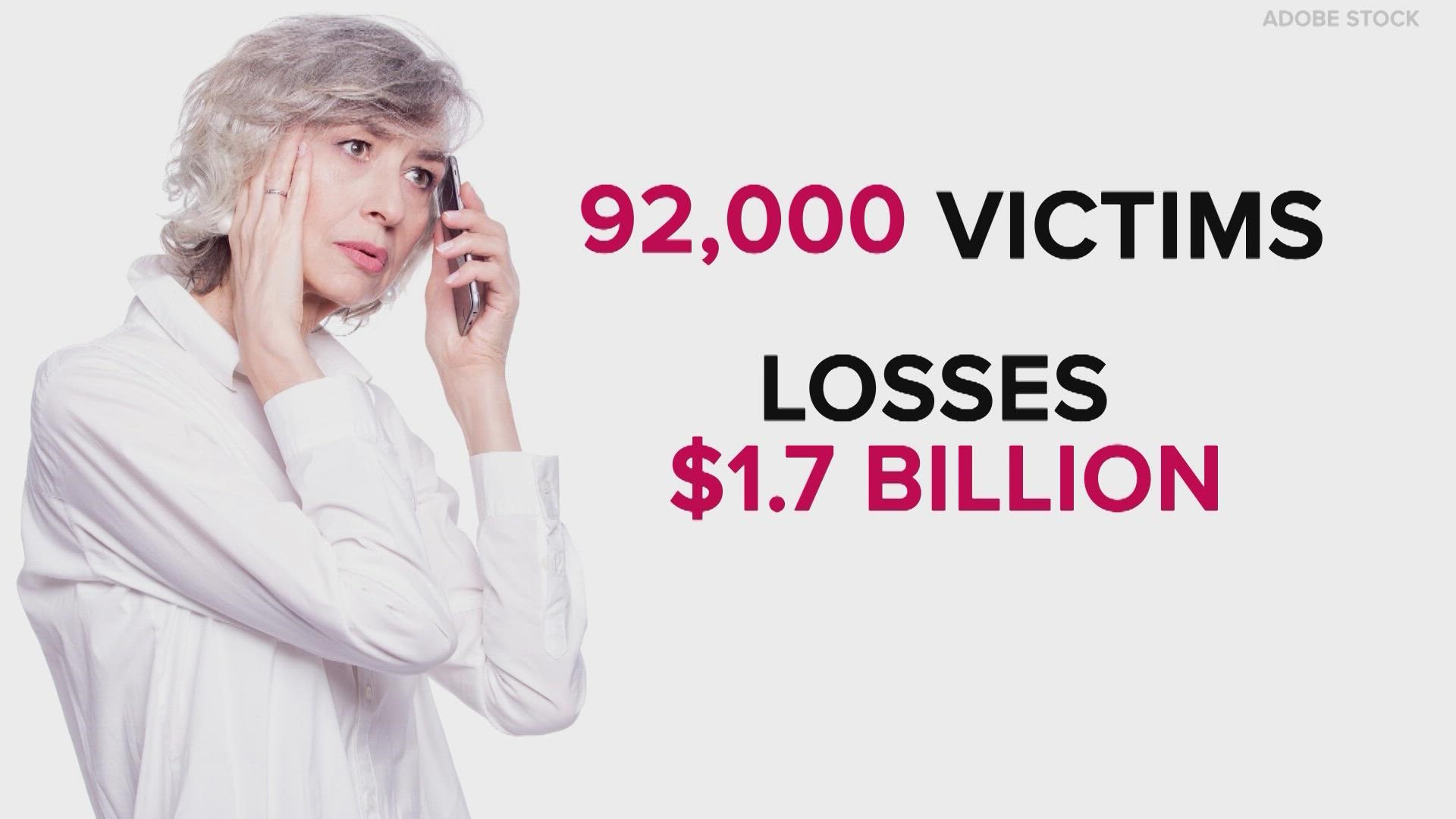HOUSTON — A phone scammer in Jamaica picked the wrong target when he called former FBI and CIA director William Webster.
“I served in WWII and Korea. I was a federal judge. I was the director of the FBI. Director of the CIA and I was the target in an elder fraud scheme,” Webster said in a new FBI public service announcement.
The campaign is directed at older Americans who fall victim to financial fraud schemes. Last year, the FBI’s Internet Crime Complaint Center (IC3) received more than 92,000 complaints from victims over the age of 60. Their combined losses topped $1.7 billion.
Webster and his wife Lynda helped the FBI capture the scammers who tried to steal money. The calls started with a man who said his name was David Morgan telling Judge Webster that he won a lottery.
The calls were recorded.
“The total value of the award is about, it is about $72 million,” the caller “David” said.
“72?” Webster asked.
“72 million,” the caller repeated. “You are the first-place winner.”
But since Webster didn’t send money right away, the calls got ugly. Lynda Webster will never forget how vile the caller was. He even knew details about their house.
“He got me on the phone alone and threatened to shoot my brains out onto our white house,” Lynda Webster said. “He knew we lived in a white house and had a sniper that would do it.”
That call was recorded too.
“I’m going to kill you. I’m going to kill your husband. I am going to set your house on fire because you seem to be playing around and you doesn’t know who am I,” said the voice on the other end.
The Websters didn’t fall for the scam and helped federal authorities with evidence to arrest Keniel Thomas. He was picked up while on a trip from Jamaica to the U.S.
Thomas pleaded guilty to interstate communication with the intent to extort. After serving his time, Thomas will be deported.
William Webster is also the face of a new campaign warning seniors about elder fraud. Lynda Webster hopes you’ll share it with the seniors in your family.
“Two people can’t do much but 100 million people all sending a video around to their elders can make a difference,” she said.
Tips to protect yourself from fraud scams
Here are some tips from the FBI to avoid being a victim and ways to report the crime.
Protect Yourself
- Recognize scam attempts and end all communication with the perpetrator.
- Be cautious of unsolicited phone calls, mailings, and door-to-door services offers.
- Resist the pressure to act quickly. Scammers create a sense of urgency to produce fear and lure victims into immediate action. Call the police immediately if you feel there is a danger to you or a loved one.
- Never give or send any personally identifiable information, money, jewelry, gift cards, checks, or wire information to unverified people or businesses.
- Make sure all computer anti-virus and security software and malware protections are up to date.
- Disconnect from the internet and shut down your device if you see a pop-up message or locked screen. Pop-ups are regularly used by perpetrators to spread malicious software. Enable pop-up blockers to avoid accidentally clicking on a pop-up.
- Be careful what you download. Never open an email attachment from someone you don't know and be wary of email attachments forwarded to you.
- If a criminal gains access to your device or account, immediately contact your financial institutions to place protections on your accounts. Monitor your accounts and personal information for suspicious activity.
How to Report
If you believe you or someone you know may have been a victim of elder fraud, contact FBI Houston at 713-693-5000 or submit a tip online at www.tips.fbi.gov. You can also file a complaint with the FBI’s Internet Crime Complaint Center at www.ic3.gov.
When reporting a scam—regardless of dollar amount—include as many of the following details as possible:
- Names of the scammer and/or company
- Dates of contact
- Methods of communication
- Phone numbers, email addresses, mailing addresses, and websites used by the perpetrator
- Methods of payment
- Where you sent funds, including wire transfers and prepaid cards (provide financial institution names, account names, and account numbers)
- Descriptions of your interactions with the scammer and the instructions you were given
You are also encouraged to keep original documentation, emails, faxes, and logs of all communications.

